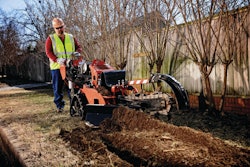
As we continue to experience a shortage of workers in the construction industry we are also observing a turnover of leaders. The next “wave” of leaders are in some cases charting new waters. Many new and soon to be new leaders have had little training and development to better navigate their new position.
Let me briefly present what I call the “Eight ‘Knows’ of Leadership". For the new leader, or the leader “in waiting,” the list will provide some rich insights to what they will need to focus on to ensure their leadership makes strong and sure improvement steps.
#1 Know your people
To “know” is to understand the profile make-up of others including: personality traits, work style and ethic, strengths, weaknesses, personal hobbies and interests, and even general information about the worker’s family members, including their names. Knowing your people well allows you to better approach your workers, leading them to greater performance and use of their own skills, knowledge and dreams.
#2 Know your business
New leaders need to spend extra time studying their company, their industry and their specialty of focus. The construction superintendent needs to study just as much about better scheduling techniques and material improvements as the new “IT guy” gains more knowledge on the software currently used by thecompany and what other software improvements are available that could improve the company’s performance.
This “Know” is a never-ending process of education.
#3 Know your customers
A customer is certainly a “paying customer,” the individual or company whom the contractor is contracted to perform work. If a construction leader deals directly with the external customer, they need to develop more knowledge about the customers’ needs, expectations, requirements, etc.
Just as important, however, is to “know” your internal customer. An internal customer is an individual or department who you provide information to or support in some way. Knowing the needs and expectations of your internal customer is what makes for better company relationships and culture.
#4 Know your objectives
It’s crucial that a new leader gain early knowledge of their objectives. Objectives can represent key expectations that must be met. Objectives might also represent goals and milestones that a leader needs to achieve.
Perhaps the best question a new leader can ask their senior leader is, “What do you expect from me?”
The greater clarity a new leader has of this the sooner, and more effectively, the leader can perform their role and achieve, even surpass their objectives.
#5 Know your situations
For the new leader knowing their situations might include what sort of workers are reporting to them or what is the attitude from their direct reports about their jobs, their previous leader, even the company. Knowing your situation is also being aware of how things are processed and completed. Every construction company has “their way” of doing things so it is important that the new leader know those ways.
#6 Know your available resources
What leaders call resources has certainly evolved over the years. While most leaders still consider resources to include equipment, tools and vehicles, resources today might also include information, technology and even available workers with some needed level of expertise.
As a leader, knowing your available resources is akin to the baseball coach knowing what pitchers are available to pitch and who is the best pitcher for a given game situation. It’s critical for construction leaders to know the available equipment and tools for sure, what’s working and what needs maintenance.
Likewise, it’s critical for the leader to know who are the available workers who are best suited for the specific work to be completed.
#7 Know your consequences
Taking two workers from one crew to work on a different crew may have negative consequences for the crew they left, causing the first crew to work longer hours to accomplish the scheduled work. Making the decision to delay making a pour this afternoon may have consequences for the next day of productivity. Giving one customer a “pass” on doing a little extra work, without a formal and signed change order, might have negative consequences should the extra work go bad.
Every decision and action have consequences, and the leader must calculate what those consequences are prior to taking an action or making a decision.
#8 Know your boundaries
Finally, this eighth “Know” is about a leader understanding their boundaries: What are they allowed to make decisions about? How much can they request from their workers? How hard can they push their workers before they have pushed too far?
Knowing your boundaries isn’t so much about what you “can’t do” but more on what you can and should do. Aside from obvious immoral or illegal issues, knowing your boundaries is about respecting your workers, your peers, your senior leaders, your customers and your company’s commitment to excellence.
Learning the “8 Knows” is not easy and may not always be learned from reading a book or taking a class. Much of the knowledge gained is “on the job,” but it is important for the new leader to seek greater confidence and comfort in leading more effectively as a result of the eight “Knows” of leadership.
Here’s to saying “Yes” to the eight “Knows.”




















